Vertical gardens are a great way to produce your own herbs and salad greens at home. Protect your crops with this simple organic pest control solution.
Companion planting is a great organic pest control solution, lessening the need for harmful pesticides that could affect your family or pets.
Put very simply, companion plants are plants that keep bugs away (the bad bugs) and attract a healthy ecosystem of the helpful insects into your yard. Companions also offer other added benefits, apart from providing a natural insect repellent. For example, in horizontal gardens, taller plants can provide shade for smaller plants, creating a more efficient use of space.
Planting certain plants close together can also stimulate the crops, leading to higher yields and better flavors.
Another surprising benefit of companion planting is that many of these plants are also very attractive. Companions add splashes of color to your herb garden, creating a very aesthetically pleasing display.
"Companion planting may just be one of the most efficient ways to grow your own stuff" - Candace Osmond, Backyard Boss
When should planting begin? Check out this 2021 Planting Calendar to learn when and how to sow your companion plants.
TEN EXCELLENT COMPANION PLANTS TO PROTECT YOUR VERTICAL GARDEN:
Basil:
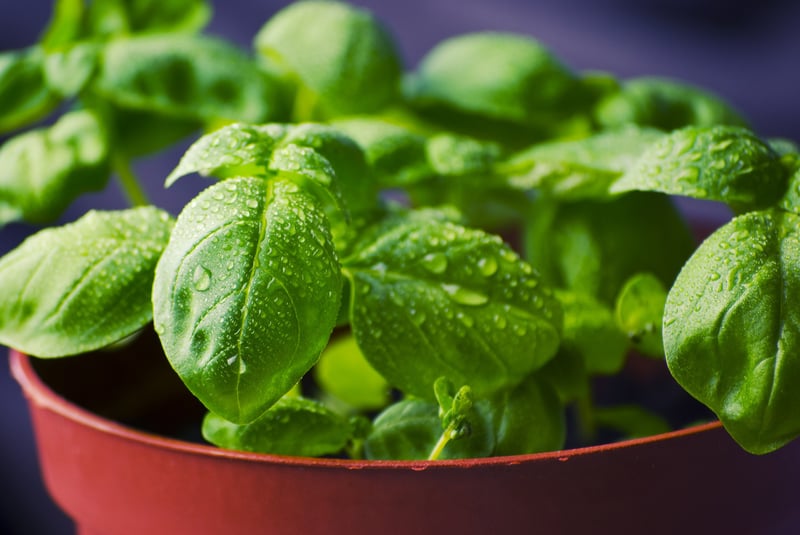
Basil is a tasty herb, which is used regularly in the kitchen. It’s also a natural mosquito repellent. When planted near crops like tomatoes and lettuce, basil acts as a flavor enhancer. Basil can easily be planted in among other varieties of herbs in your vertical garden. As an added bonus, basil and tomato together make a wonderful salad or pizza topping.
Borage:
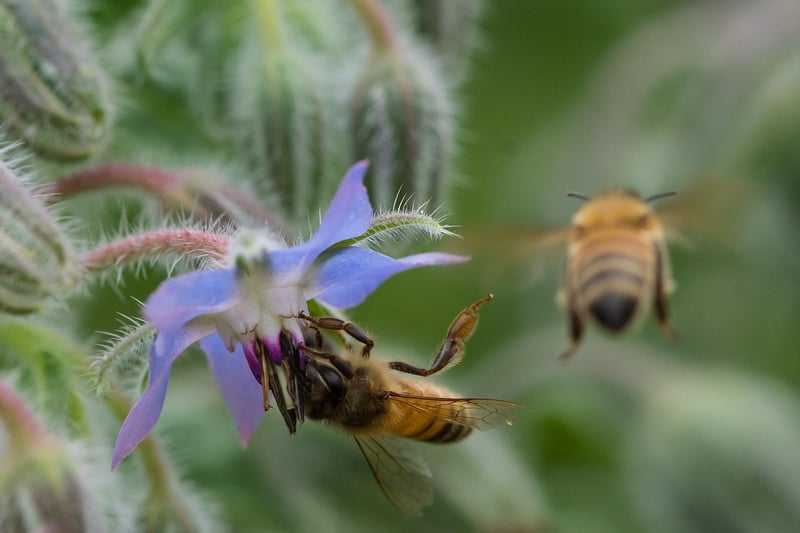
Borage (also known as a starflower) is an annual herb the sprouts distinctive (and very pretty) blue and purple blossoms. Borage attracts insects like bees and butterflies which help with pollination. The leaves of the Borage plant have a slightly prickly texture and a cucumber flavor. You can use Borage in salads, or brewed as a herbal tea. It has various health benefits including being a good source of essential fatty acids which help to fight pain and inflammation in the body.
Borage can grow up to two feet tall and is a bit too large to plant in your vertical garden. However, it can easily be cultivated in pots which you can stand nearby your green wall system. Adding companion plants in small pots near your living wall will create a beautiful (and functional) display.
Chives:
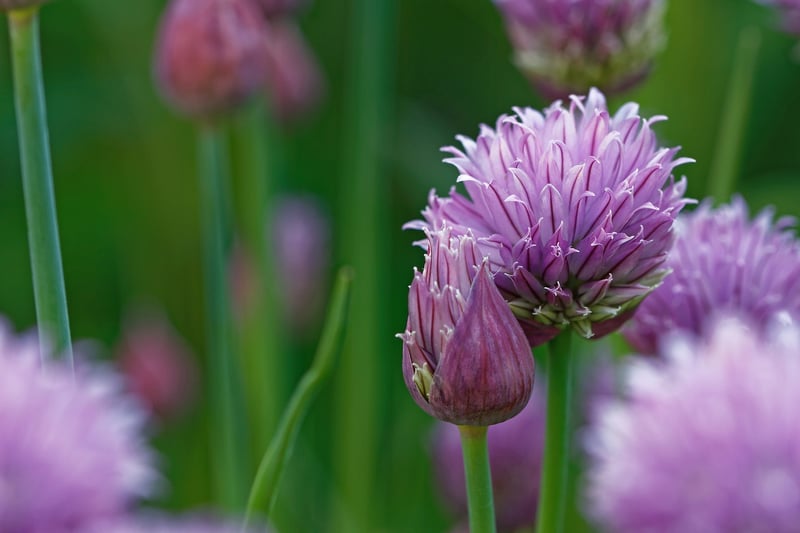
Chives are a delicious addition to salads and dips and are used extensively in the kitchen. Surprisingly, they also have delicate, lavender-colored blossoms which bring a flash of purple into your garden (they look fantastic alongside the deep blue and purple hues of Borage).
Chives repel aphids and Japanese beetles and improve the flavors and growth of other plants nearby.
Dill:
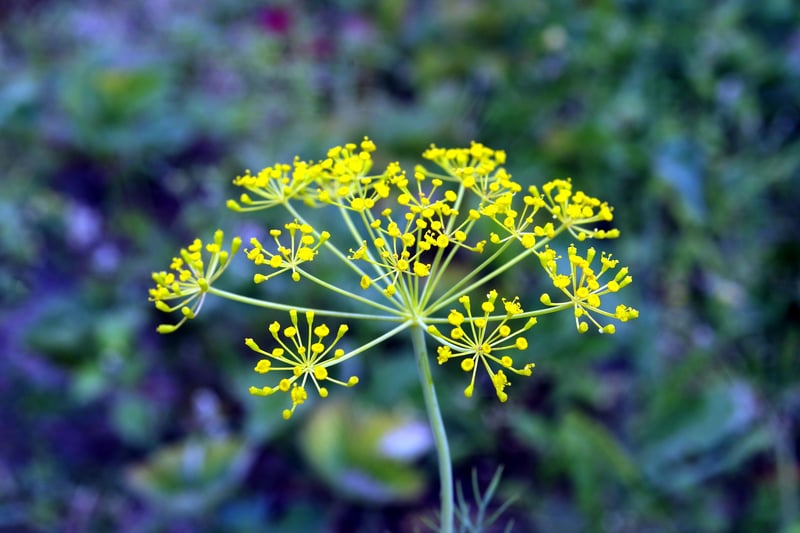
Dill (not to be confused with the very similar-leafed fennel) has a distinctly mild, warm flavor that pairs particularly well with seafood.
Dill can also be brewed into a herbal tea, which is good for colds, flu, and digestion. Dill attracts beneficial wasps which feed off of cabbage worms and other pests. If you’re looking to cultivate leafy salad greens in your vertical garden, it’s a good idea to include dill in a small pot nearby.
Marigolds:
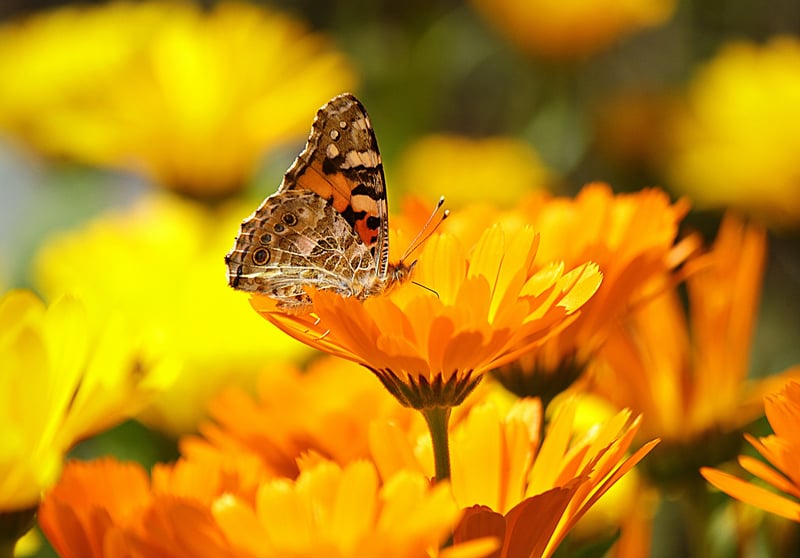
Mosquito's can’t stand marigolds. They’re also great for repelling most pesky insects from bean beetles to aphids, potato bugs, squash bugs, nematodes, maggots, and flies. These beautiful little flowers are very easy to propagate and come in a variety of bright, happy colors.
Apart from their bright blossoms and incredible insect repellent qualities, marigolds are an affordable substitute for saffron in the kitchen.
They’re a great plant source of vitamin A and can be used in casseroles, bread, omelets, and soups. Marigold plants are relatively small and can slot neatly into your vertical garden in between other herbs and salad greens for a hint of color.
Nasturtiums:
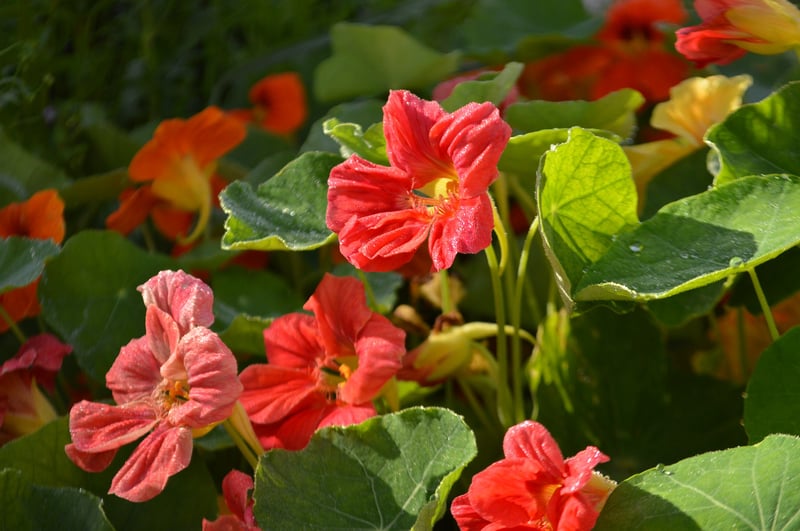
The word Nasturtium (directly translated from Latin) actually means nose twist - and these little plants live up to their reputation. Nasturtiums have a distinct, peppery flavor that goes well in stir-fries and salads. If you’re not a fan of their strong flavor, their bright blossoms can be used decoratively, to dress up dishes at dinner parties or in vases on the table.
Nasturtiums serve two important purposes as companion plants. Firstly they attract predatory insects (like spiders and ground beetles) into your garden - which are vital to a healthy ecosystem. Secondly, their pungent, peppery flavor repels aphids, potato bugs, striped pumpkin beetles, Mexican bean beetles, and whiteflies. You can include nasturtiums on your green wall, or alternatively, you can grow larger quantities in pots around the base of your vertical garden.
Oregano:
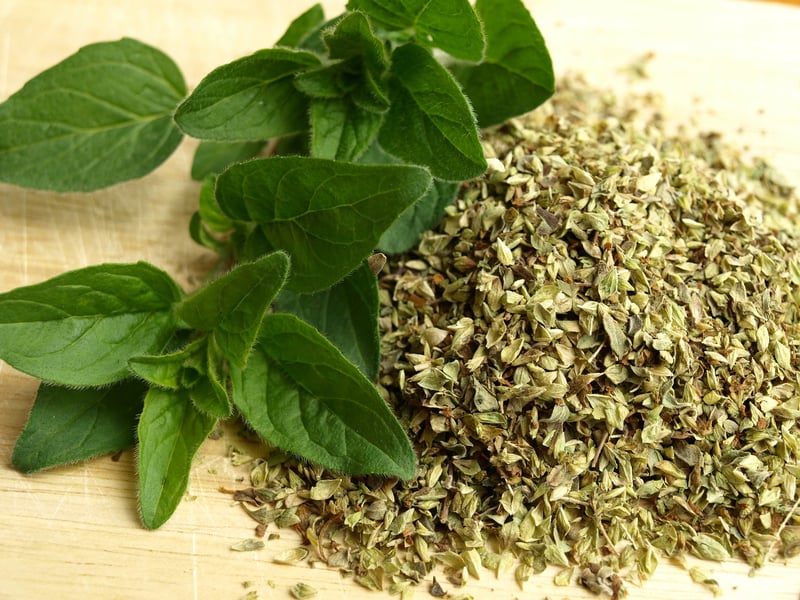
Oregano repels most pests and is an essential herb for every kitchen. Whether fresh or dried, oregano is one of the staple herbs for any Greek or Italian dishes.
This leafy little herb grows pretty much all year round, and slots beautifully into a vertical herb garden. It’s a great source of fiber, plant-based vitamin A, vitamin C, E and K. Oregano also contains iron, calcium, and magnesium. When used as part of a balanced diet, Oregano can help decrease the risk of cardiovascular diseases and diabetes.
Rosemary:
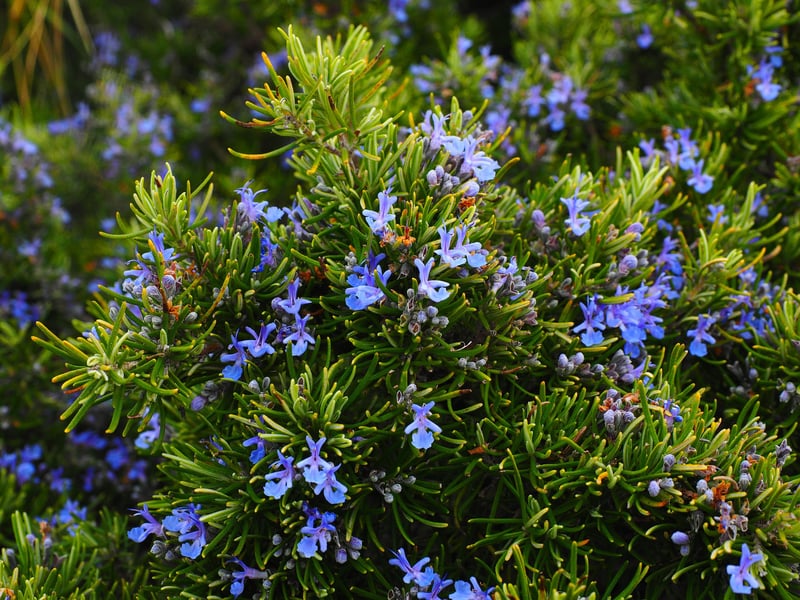
Rosemary is a versatile herb which can be used in cooking, medicinally and aromatically. It’s a relative of the mint family, and its leaves look similar to lavender but are dotted with tiny blue flowers. As a companion plant, rosemary repels bean beetles, carrot flies, and cabbage moths.
It’s extremely hardy and does well both outdoors and inside. It has a woody, slightly citrus flavor and is a great addition to roasts. Medicinally, it’s known for its antibacterial, anti-fungal and antiseptic qualities. Rosemary is a fantastic addition to your vertical garden.
Sage:
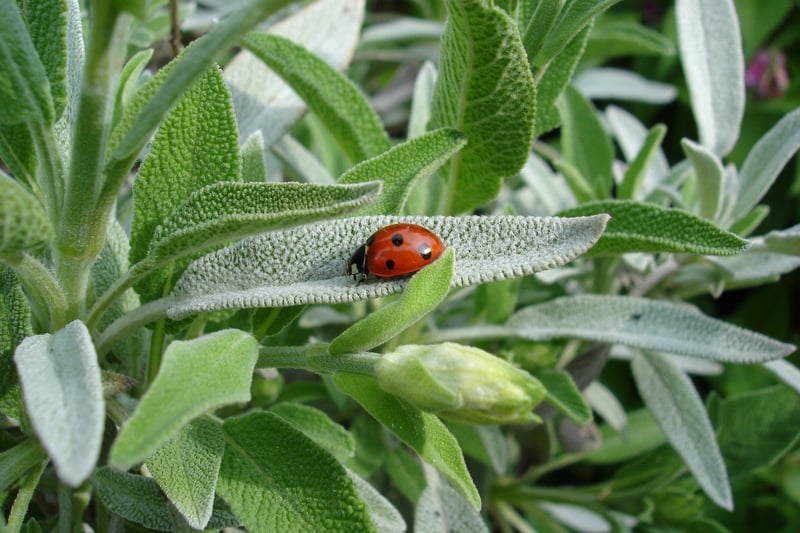
Sage is closely related to rosemary and shares a similar woody fragrance. It’s used to treat a variety of ailments, from inflammation to immunodeficiencies, digestion problems, and skin conditions. Like its cousin rosemary, sage repels cabbage moths and carrot flies. Sage is also an excellent companion for tomatoes, as it stimulates their growth. It can easily be part of your green wall, adding aesthetic variety with its unique, fuzzy, gray-green leaves.
Tomatoes:
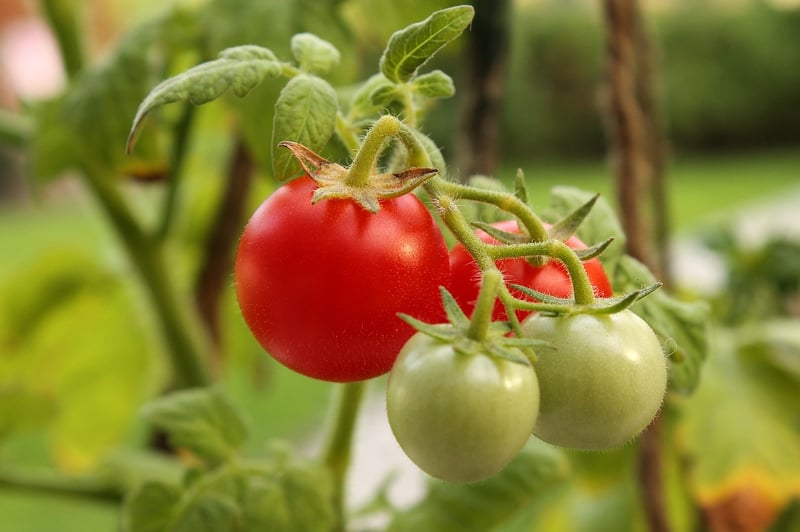
Cherry tomatoes are a must have in every garden. These delicious, versatile crops grow well in conjunction with basil and sage. Tomatoes also repel diamond moth larvae - protecting your cabbage and leafy greens from caterpillars which destroy your crops.
Planting your tomatoes near to your sage will boost their growth and yield, and basil will enhance their flavor. Tomatoes are natural creepers, so they’ll do well growing vertically. The best part of including tomatoes in your edible garden is you’ll always have a fresh supply for salads, and other dishes - right outside your kitchen door.
Pests can destroy your crops, and are every gardener’s worst nightmare. Keep this handy companion planting guide on hand to help you get the most out of your vertical garden without having to resort to using harmful chemicals to protect your crops. Organic pest control is the healthier choice for you and your family and will encourage a healthy ecosystem in your garden - attracting all sorts of helpful critters from ladybugs, to bees and butterflies.
Join the GrowUp dates Community if you’d like more helpful tips to help you grow healthy, organic herbs and salad greens in your edible garden. Community members will receive all of our latest content, straight to your inbox - ensuring that you’ll never miss a post!


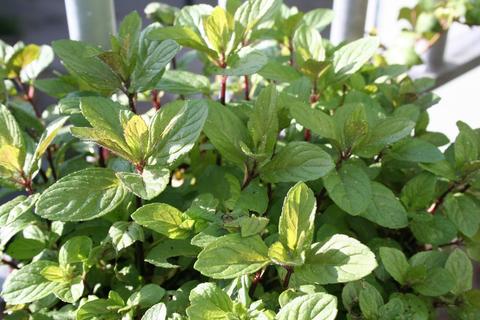
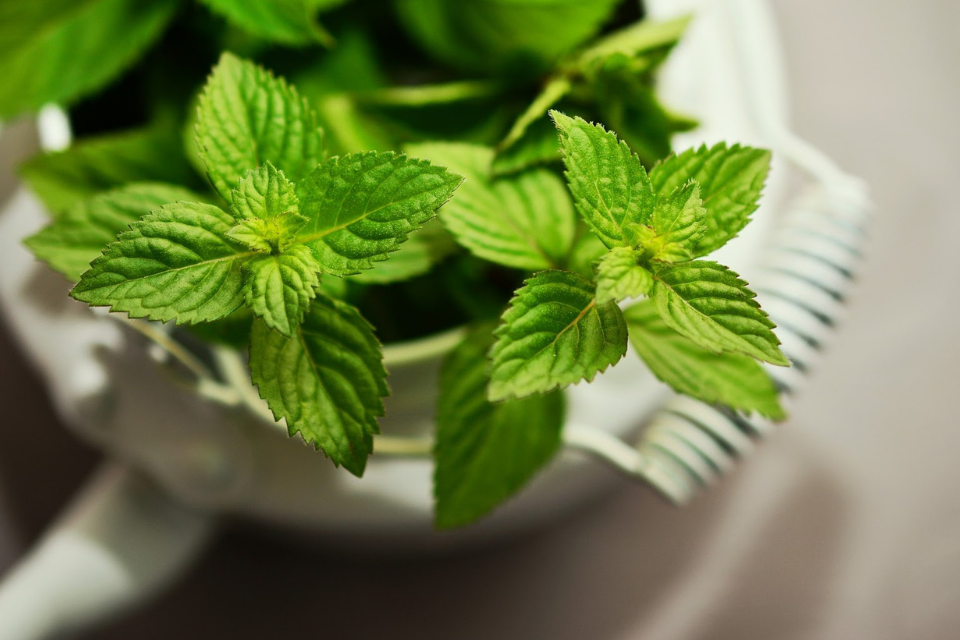
![5 Common Rookie Errors New Urban Farmers Make [and How to Avoid Them]](https://blog.growup.green/hubfs/5%20common%20rookie%20errors%20new%20urban%20farmers%20make%20%5Band%20how%20to%20avoid%20them%5D.png)